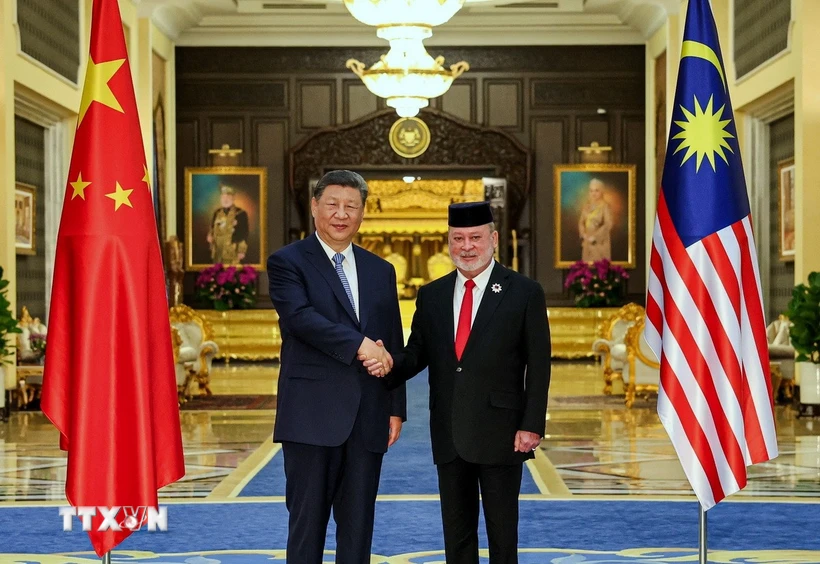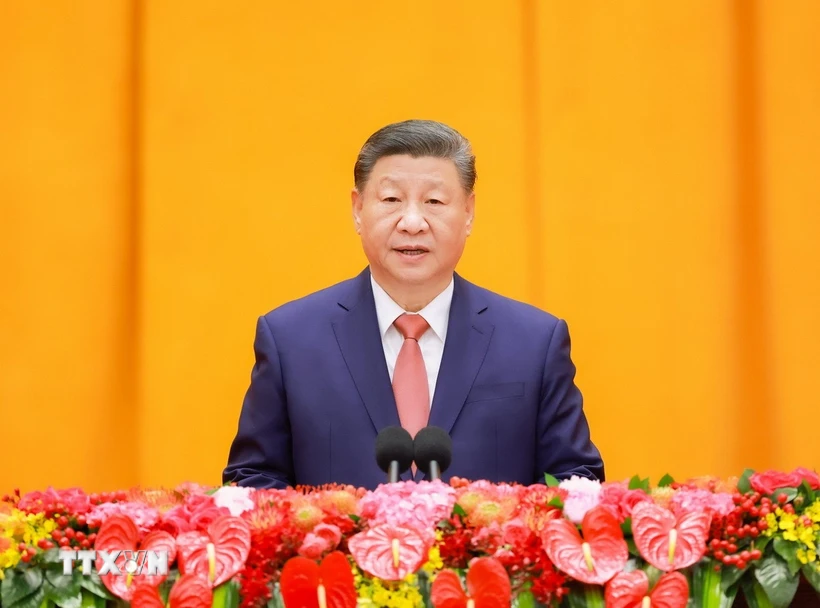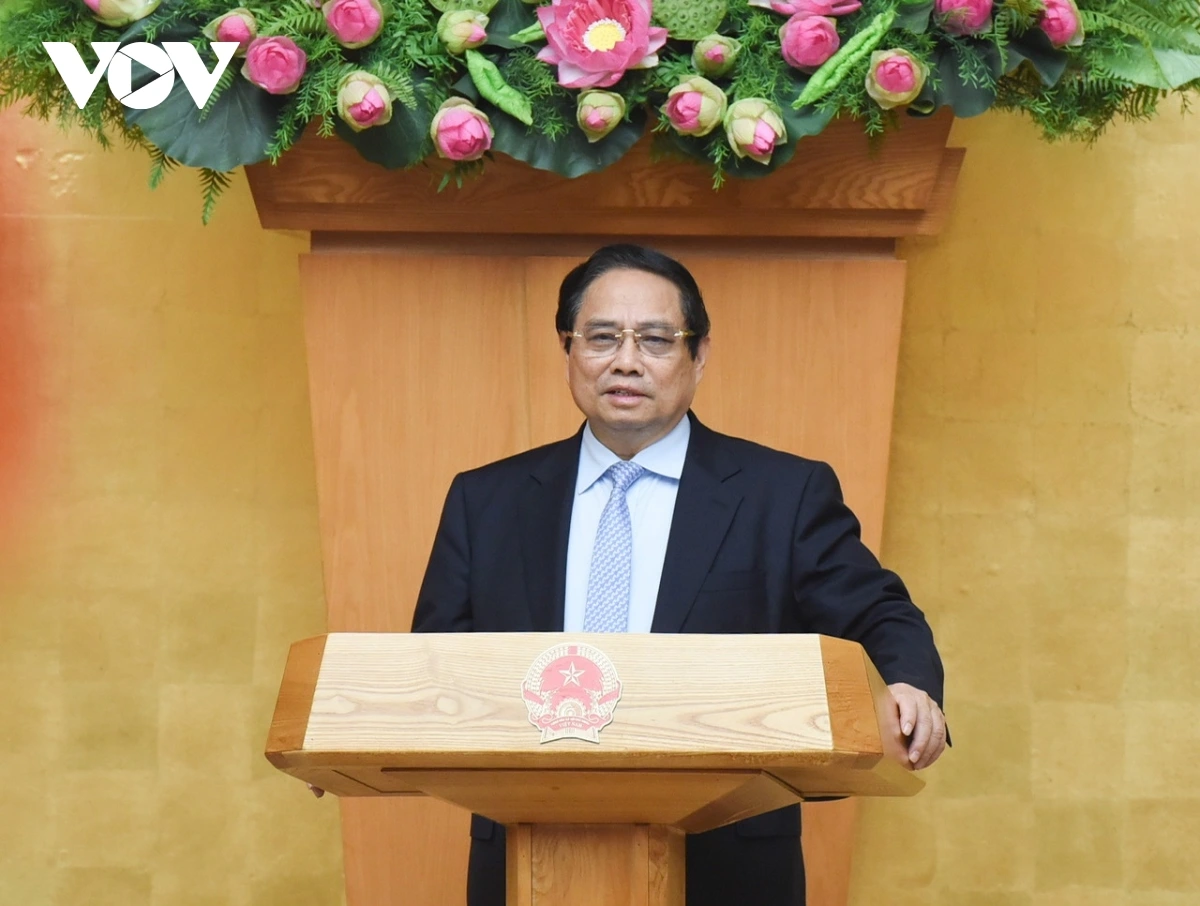At the AI Action Summit hosted by France, the US and UK on the evening of February 11 (Vietnam time) refused to sign a joint statement on this field, which sets standards for AI development.
When America "broke the fence"
Speaking at the conference, US Vice President JD Vance stressed that strict regulations to control AI could stifle the development of AI technology. At the same time, Mr. Vance also opposed content censorship. "I'm not here to talk about AI safety, which was the headline a few years ago. I'm here to talk about AI opportunity," Vice President JD Vance declared.

The US is increasing the application of AI for the military.
Mr. Vance's message was predictable. In an analysis by Eurasia Group (USA) - the world's leading political risk research and consulting firm - sent to Thanh Nien in mid-November, it was predicted that after President Donald Trump took office, the executive orders of his predecessor Joe Biden to control AI would be abolished.
Also at the conference, the US Vice President raised the issue: "Some authoritarian regimes have stolen and used AI to enhance their surveillance and military capabilities, collect foreign data, and undermine the national security of other countries." Thereby, the representative of the White House emphasized that Washington will prevent such efforts, and at the same time declared that the US will continue to lead in AI.
Obvious risk
Although Mr. Vance did not name the target the US needs to stop, it is not difficult to see that it is China. The two countries are fiercely competing in AI even as Washington puts up many barriers to prevent Beijing from accessing advanced technologies.
In such a context, even if he affirms that AI will not be “weaponized”, the new race for military-related AI is likely to heat up soon. That is because the US has recently repeatedly warned that China is increasing the development of AI for military purposes.
In late 2024, Reuters cited several sources confirming that leading Chinese research organizations linked to the country's military were using some technologies made public by Meta (owner of Facebook) to develop AI models for military use.
Also in 2024, the Brookings Institution (USA) published a report indicating that the Chinese military is seeking to "upgrade its class" with advanced weapons systems through significant investments in robotics, automated swarm attack models, and other applications of AI, machine learning (ML). Many other US research and policy advisory agencies have also published a series of reports affirming that China is accelerating the application of AI in weapons and operations.
Of course, Washington is not sitting still! At a conference organized by the Director of the Office of Artificial Intelligence and Digital Affairs (Department of Defense) in early 2024, Pentagon officials emphasized the need to enhance AI in military operations. The Pentagon is expected to invest heavily in this issue for the US military's giant apparatus.
In November 2024, The Washington Post reported that Anthropic, a leading AI startup that has raised billions of dollars in funding, announced plans to sell its AI technology to US military and intelligence agencies. At the same time, Meta (owned by Facebook) announced that it would provide open source code, the Llama system, and some AI technology to the US military. Similarly, OpenAI (owned by ChatGPT) also confirmed that it would provide technology to the Pentagon.
In fact, Israel has also applied AI to combat in recent times. The use of AI for military purposes raises concerns about ethical factors and unexpected risks.
US sends 2 naval ships through Taiwan Strait
The US Navy announced that the guided-missile destroyer USS Ralph Johnson and the survey ship USNS Bowditch passed through the Taiwan Strait from February 10 to 12. This is the first time a US naval ship has passed through the Taiwan Strait since Donald Trump took office for a second term on January 20, according to Reuters.
In response, the Chinese People's Liberation Army (PLA) announced yesterday morning that it had mobilized forces to monitor the two US naval ships. "The US actions send the wrong signal and increase security risks," the PLA's Eastern Theater Command emphasized. In another development, the South China Morning Post reported on the evening of February 11 that Taiwan will spend $761 million to buy three advanced NASAMS missile systems from the US.
Faculty of Arts
Source: https://thanhnien.vn/chay-dua-quan-su-hoa-tri-tue-nhan-tao-185250212225217288.htm



![[Photo] The beauty of Ho Chi Minh City - a modern "super city" after 50 years of liberation](https://vstatic.vietnam.vn/vietnam/resource/IMAGE/2025/4/18/81f27acd8889496990ec53efad1c5399)
![[Photo] Nhan Dan Newspaper announces the project "Love Vietnam so much"](https://vstatic.vietnam.vn/vietnam/resource/IMAGE/2025/4/17/362f882012d3432783fc92fab1b3e980)
![[Photo] Promoting friendship, solidarity and cooperation between the armies and people of the two countries](https://vstatic.vietnam.vn/vietnam/resource/IMAGE/2025/4/17/0c4d087864f14092aed77252590b6bae)
![[Photo] National Assembly Chairman Tran Thanh Man meets with outstanding workers in the oil and gas industry](https://vstatic.vietnam.vn/vietnam/resource/IMAGE/2025/4/17/1d0de4026b75434ab34279624db7ee4a)
![[Photo] Closing of the 4th Summit of the Partnership for Green Growth and the Global Goals](https://vstatic.vietnam.vn/vietnam/resource/IMAGE/2025/4/17/c0a0df9852c84e58be0a8b939189c85a)

























![[Photo] General Secretary To Lam receives French Ambassador to Vietnam Olivier Brochet](https://vstatic.vietnam.vn/vietnam/resource/IMAGE/2025/4/17/49224f0f12e84b66a73b17eb251f7278)






























































Comment (0)